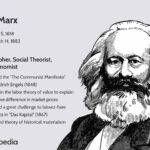As we dive into the annals of history, it’s crucial to recognize that historical interpretations are not immune to biases. Unveiling these hidden inclinations is vital in gaining a more accurate understanding of the past.
Recognizing Bias in Historical Interpretations
When delving into historical accounts, it’s essential to acknowledge that biases can subtly influence the way events are portrayed. Whether intentional or not, these biases can shape the narratives presented to us, impacting our understanding of historical events.
Types Of Bias In Historical Interpretations
Biases in historical interpretations can manifest in various forms. These biases may be based on cultural perspectives, political leanings, or societal norms prevalent during the time of documentation. Acknowledging these biases is crucial to gaining a more comprehensive view of historical events.
Impact Of Hidden Biases
Hidden biases in historical interpretations can lead to distorted views of the past. Such misrepresentations can perpetuate stereotypes, reinforce prejudices, and obscure the contributions of marginalized groups. It is imperative to unravel these hidden biases to present a more balanced and accurate historical narrative.
Unveiling Hidden Biases
Unveiling hidden biases is a multi-faceted process that requires critical analysis and an open-minded approach. By questioning historical accounts and considering alternative perspectives, it is possible to reveal and address the biases that may have influenced the interpretation of historical events.
Challenging Assumptions
Challenging assumptions embedded in historical interpretations is essential in unraveling hidden biases. This involves questioning the motives behind the documentation of certain events and critically examining the sources of historical information. By doing so, we can uncover and mitigate the impact of biased interpretations.
Diversifying Perspectives
Diversifying perspectives is key to unveiling hidden biases in historical interpretations. By amplifying the voices of underrepresented communities and considering alternative viewpoints, we can counteract one-dimensional narratives and shed light on the obscured aspects of history.

Credit: www.amazon.com

Credit: fastercapital.com
Essential Role of Education
Education plays a pivotal role in addressing hidden biases in historical interpretations. By incorporating a comprehensive understanding of diverse perspectives into curricula, educators can cultivate critical thinking skills and promote a more inclusive portrayal of history.
Promoting Critical Thinking
Encouraging critical thinking among students enables them to question historical interpretations and recognize inherent biases. By fostering an environment that values inquiry and open-mindedness, educational institutions can contribute to the unveiling and rectification of hidden biases in historical narratives.
Inclusive Curriculum Development
Developing inclusive curricula that encompass a wide array of historical perspectives is essential in mitigating hidden biases. By integrating the narratives of diverse cultures, communities, and historical figures, educational institutions can provide a more holistic portrayal of history, thereby shedding light on overlooked aspects and countering biases.
Frequently Asked Questions Of Unveiling The Hidden Biases In Historical Interpretations: Decoding The Truth
What Are Hidden Biases In Historical Interpretations?
Hidden biases in historical interpretations refer to unconscious preferences or prejudices that influence how historical events are portrayed, often omitting diverse perspectives.
Why Are Hidden Biases A Concern In Historical Interpretations?
Hidden biases in historical interpretations can perpetuate inaccurate narratives, shape public opinion, and marginalize certain groups, hindering a comprehensive understanding of history.
How Do Hidden Biases Influence Historical Interpretations?
Hidden biases can impact historical interpretations by selectively presenting information, omitting alternate viewpoints, or downplaying the contributions of marginalized communities.
Can Hidden Biases Be Identified In Historical Interpretations?
Yes, hidden biases can be identified in historical interpretations by critically analyzing sources, recognizing gaps in information, and seeking diverse perspectives.
Conclusion
Unveiling the hidden biases in historical interpretations is a crucial undertaking that requires diligence and a commitment to inclusivity. By acknowledging, challenging, and diversifying perspectives, we can strive towards presenting a more accurate and comprehensive understanding of history. Through education and critical analysis, we can work towards rectifying the distortions caused by hidden biases in historical interpretations, ultimately fostering a more enlightened view of the past.
Guest Author Sakhawat-Shuvo wrote and edited this Article based on his best knowledge and understanding. These opinions and remarks are not endorsed or guaranteed by epichistoria.com or EpicHistoria. The Epic Historia does not guarantee this article’s content. Readers should verify and use their judgment before trusting the content. Also, the Images used in this Article are the copyright of their Respective Owners. Please use our Comment Box or Contact Us form to report this content. This information is not accountable for losses, injuries, or damages.

